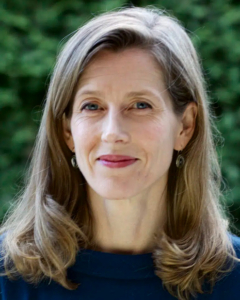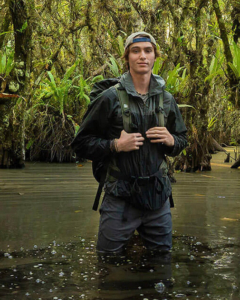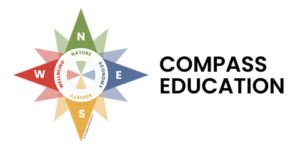
2024 Global Summit on Climate Education
Join us for an exploration of education in the era of climate change, as schools seek to develop and empower students as active and engaged global citizens. Hosted in partnership with the Klingenstein Center at Teachers College, Columbia University
As the impact of climate change continues to be felt across the world, students and educators are increasingly looking for ways in which they can respond. Research on youth climate anxiety highlights the challenge it presents for young people but also identifies the power of climate action as its antidote. Join us for an exploration of education in the era of climate change, as schools seek to develop and empower students as active and engaged global citizens, in the classroom and beyond.
What are schools, leaders, educators, students, and community partners doing in response to climate change? How are schools rethinking traditional models to center engaged and active student learning for today’s world? Examples of innovation in the area of teaching climate action are emerging in significant ways, and this summit will provide the opportunity for educators to learn about trends, models, and tools that can directly impact their work in schools.
Educators in a variety of positions, from across grade levels and disciplines, will share how they intentionally embed student action in their learning design, and participants in this summit will learn from these case studies as well as emerging research in the field of climate education. Schools will leave with new ideas and resources on how to engage students in a myriad of ways from civic and political engagement to partnering with local artists, immersive learning experiences, and school-wide sustainability programs. Participants will also be able to connect and collaborate with each other as they consider future opportunities for their schools.
Organized by the Global Education Benchmark Group (GEBG) in partnership with the Klingenstein Center and hosted at Teachers College of Columbia University, this summit will provide school leaders and educators the opportunity to build community, to share and collaborate, and to learn from scholars and leaders in the field of climate education.

General Schedule
Thursday, January 25, 1:00 – 4:00pm
- Pre-Summit Workshop: Systems Thinking Tools for Sustainability Education with Compass Education
- Optional add-on program — read more here
- Hosted at Trinity School, NYC
Friday, January 26, 9:00am – 4:00pm
- Global Summit on Climate Education
- Hosted at Teachers College, Columbia University, NYC
Saturday, January 27, 9:00am – 12:00pm
- Global Summit on Climate Education
- Hosted at Teachers College, Columbia University, NYC
Registration
- *Registration Closed* Member School and Teacher’s College Student Discount $350 USD per person, Non Member School $395 USD per person
- Friday lunch and refreshments throughout the event included
Featured Speakers

Karenna Gore is the founder and executive director of the Center for Earth Ethics and visiting professor of practice of earth ethics at Union Theological Seminary in New York. Karenna formed CEE in 2015 to address the moral and spiritual dimensions of the climate crisis. Working at the intersection of faith, ethics, and ecology, she guides the Center’s public programs, educational initiatives, and movement-building. She also is an ex officio faculty member of Columbia University’s Earth Institute.
Her previous experience includes serving as director of Union Forum at Union Theological Seminary, a platform for theological scholarship to engage with civic discourse and social change. She also worked at the legal center of Sanctuary for Families, which serves victims of domestic violence and trafficking, was director of community affairs for the Association to Benefit Children, which provides early childhood education and other services for New York City families living in poverty, and was an associate with the law firm of Simpson Thacher & Bartlett.
Karenna is the author of “Lighting the Way: Nine Women Who Changed Modern America” (2006), and has written for numerous publications, including Slate, El Pais (Spain) and the New York Times. She serves on the boards of the Association to Benefit Children, Pando Populus, which helps local communities leverage their creative and intellectual resources for sustainability, the Sweetwater Cultural Center, an Indigenous-led organization dedicated to promoting the education, health and welfare of Indigenous Peoples and to preserve their cultures and ceremonial practiced locally, regionally, and around the Western Hemisphere, and Riverkeeper, an organization that protects and restores the Hudson River and safeguards drinking water. She is also an expert in the United Nations’ Harmony with Nature Knowledge Network, an online platform of practitioners, academics, and researchers.

Luca Martinez is a nature and wildlife photographer and videographer from Miami, FL. It was likely destined, as Luca wanted to be outside from sunrise to sunset when he was a little boy. He couldn’t wait to be in nature and growing up in South Florida meant he could be outdoors almost every day of the year.
His love for ospreys took him to the Everglades where he’s been shooting regularly for the past three years. Lost for hours and days at a time, he draws inspiration from the subtropical wilderness among the grasses, cypress trees, and wildlife. Luca spent months wading through remote cypress domes and sloughs. It was the crystal clear water and vibrant green aquatic plants that kept him going back. But only seeing it from above wasn’t enough. His curiosity took him below the surface where he realized the world underwater in the Everglades is just as extraordinary and alive as its dry reflection.
Luca has introduced the beauty of a rarely experienced Everglades to more than 110 million worldwide viewers through viral cinematic videos on social media, primarily on Instagram and Tik Tok. Both platforms have proven to be instrumental in reaching his generation and cutting through the clutter to raise awareness about conservation and inspire action. Through his videos and photography Luca captures not just the beauty of the Everglades and our wild places but also shares the threats and demonstrates their impact on our ecosystems.
Detailed Schedule
Friday, January 26
9:00-9:30 AM // Opening & Welcome
9:30 – 10:30 AM // Emerging Research in Climate Education Panel Discussion
10:30 – 11:30 AM // Networking Conversations by Topic
11:30 AM – 12:00 PM // Featured Speaker: Karenna Gore
12:00 – 1:00 PM // Lunch
1:00-2:00PM // Breakout Session I
Biodiversity in Action: Pathways to Rewilding Independent School Campuses
Andrea Caruso, Upper School Science Faculty and Tina Bessias, Upper School Sustainability Coordinator and Science Faculty, Durham Academy (NC)
Empowering Tomorrow’s Climate Leaders as Climate Speakers
Leopoldo Llinas, Director of Environmental Stewardship, Palmer Trinity School (FL); Diego Molina-Castrillon, Program Manager, CLEO Institute (FL)
Growing Climate Activists and Advocates – Hathaway Brown’s Fellowship in Sustainability
Torrey McMillan, Director of Fellowship in Sustainability, Hathaway Brown School (OH)
Experiential and Immersive Learning on Climate Issues Panel Discussion
Panelists:
Beth St. John, Founder and Educational Program Director, Aspire Institute (NL)
Vanessa Babinecz, Director of Strategic Partnerships and Experiential Learning, Agnes Irwin School (PA)
Peter Zdrojewski, Director of Outdoor and Global Education, The Branson School (CA)
Sara Graham, Assistant Director of the Sage Center for Global Education and Inclusion, Sage Hill School (CA)
Facilitator: John Hughes, Director of Experiential Education, The Lawrenceville School (NJ)
Climate Change Across the Curriculum Panel Discussion
Panelists:
David Lindo, Physics Teacher and Sustainability Coordinator, The Dalton (NY)
Carolyn McGrath, Art Teacher, Hopewell Valley Central High School (NJ)
Karina Baum, Director of Global Education K-12, Buckingham, Browne, and Nichols School (MA)
Yen-Yen Chiu, Director of Content Creation, SubjectToClimate (NY)
2:00PM-3:00PM // Breakout Session II
Climate Action Leadership Diploma at Pearson College UWC: Innovative learning for concrete social change
Emily Coolidge, Director of the Climate Action Leadership Diploma, Pearson College – United World College (BC)
Teaching Climate Change via Understanding, Connection and Empowerment
Kate Schafer, Science Department Chair Sequoyah School (CA) and Director of Children’s School of Science (MA)
From Spark to Flame: Cultivating a Sustainable Green Team
Kelly Finn, Director of Innovation and Advanced Interdisciplinary Education Sarah Holmes, Science Teacher and Green Team Leader, St. Theresa’s Academy (MO)
Weaving Climate Action into Elementary Classrooms
Ina Patel, Director of Teaching and Learning, Christina Perez, Third Grade Teacher and Sarah Wyllie, Kindergarten Teacher, Brimmer and May School (MA)
Partnering with Schools in Climate Education Panel Discussion
Panelists:
Peter Milne, Founder, Target 4 Green / Beyond COP21 Symposium (UK)
Jeff Sharpe, Executive Director, Sustainable Learning (NY)
Sylvia Watts McKinney, CEO and President, Thompson Island Outward Bound Education Center (MA)
GItanjali Paul, Education Program Manager, Compass Education
3:00PM-4:00PM // Breakout Session III
Workshop on Strategic Planning for a More Interconnected Future
Marley Matlack, Director, Alvord Center for Environmental and Global Studies; Jeff Dyreson, Director of Sustainability, The Loomis Chaffee School (CT)
Youth Empowerment through Sustainability and Climate Action Learning
Ana Romero, Head of Sustainability, Wellington College, UK
Climate Change and Storytelling: Interdisciplinary Possibilities in Science and the Humanities
Margo Andrews, Science Faculty and Nathaniel Van Yperen, Religion Department Chair, The Pennington School (NJ)
Opportunities and Challenges in Whole School Sustainability Initiatives Panel Discussion
Panelists:
Liz Cutler, Sustainability Consultant / Retired from Princeton Day School (NJ)
David Kramer, Director of Green Programs, Boston Green Academy, Boston Public Schools (MA)
Stephen Laubach, Director of Sustainability, The Lawrenceville School (NJ)
Nicola St George, Director of Sustainability and Regeneration and English Faculty, Appleby College (ON)
Facilitator: Lindsey Lohwater, Director of Sustainability, St Mark’s School (MA)
Climate Action in Middle and Lower Schools Panel Discussion
Panelists:
Megan Greene, Fourth Grade Teacher, Ross Elementary School (DC)
Cushman Gillen, Green Dean and Middle School Science Teacher, The Gordon School (RI)
Laura Fleming, Environmental Sustainability Manager, Polytechnic School (CA)
Henry Clark, Middle School Humanities and English Teacher, Brooklyn Friends School (NY)
Saturday, January 27
9:00-9:30AM // Opening and Featured Speaker: Luca Martinez
9:30-10:30AM // Highlights Sessions I & II
Two rounds of 20-30 minutes
Breaking Barriers: Open-Access Planetary Health Education for All
Emilie Christine Solomon, High School Science Teacher, The Benjamin School (FL)
Buckley Climate Conference and Tipping Points Science Class
Anat Fernandes, Science Department Chair and Coordinator of Environmental Initiatives, The Buckley School (CA) and Kari Bosworth, Science Department Chair, Oakwood School (CA)
Climate Change Awareness Through Theatre Arts
Laurie Sales, Director of Theatre and Dance, The Groton School (MA)
Down to Earth: Stories of Two Teachers who See the World Through the Eyes of Young Children
Cristy Athas, Lower School Teacher; Annie Collins, JK-5 Science Teacher, North Shore Country Day School (IL)
Frontiers of Climate Change: Iceland Global Travel Program
Kerry Linderoth, Director of Sustainability and Dan Murray, Director of Global Studies, Rye Country Day School (NY)
Keeping Tahoe Blue: A Global Field Studies Program Addressing Climate Change and Overtourism
Gillian Johnson, Assistant Director of Experiential Education and Spanish Teacher and Bailey Farrell, Upper School Chemistry Teacher, The Pingry School (NJ)
Identity and Climate Change
Sarah Jeanne Shimer, PK-12 Sustainability Coordinator, Science Department Co-Chair, Berwick Academy (ME)
Nothing Makes Institutions Listen like Well-run, Student-led Projects
Will Willis, Director of Environmental Initiatives and Teacher of Advanced Studies: Environmental Science, Mercersburg Academy (PA)
Inclusion and Entrepreneurship in High School Climate Education
Mark Eastburn, Science, Research, and Engineering Teacher, Princeton High School (NJ)
Bard College’s Worldwide Climate and Justice Education Week
Dr. Eban Goodstein, Vice President, Environmental and Social Leadership; Director, Graduate Programs in Sustainability, Bard College (NY)
10:30 – 11:30 AM Networking and Action Conversations by Topic
11:30 AM – 12:00 PM Culminating Session
Emerging Research in Climate Education Panel Discussion
This panel features researchers and authors with recent studies or publications on climate education. Panelists will share highlights of their work with a focus on practical implications for educators leading climate education initiatives in the classroom and beyond. This panel is hosted in partnership with the Center for Sustainable Futures at Teachers College, Columbia University.
Introductory Remarks
Dr. Oren Pizmony-Levy, Associate Professor, Department of International and Transcultural Studies; Director, Center for Sustainable Futures, Teachers College, Columbia University
Panelists:
Dr. Radhika Iyengar, Director of Education, Center for Sustainable Development, Climate School, Columbia University
Tom Roderick, Author, Founding Executive Director of the Morningside Center for Teaching Social Responsibility (retired)
Dr. Clare Sisisky, Executive Director, GEBG; Postdoctoral Research Fellow, the Klingenstein Center, Teachers College, Columbia University
Christina Torres, Doctoral Candidate, Research Assistant and Center Coordinator, the Center for Sustainable Futures, Teachers College, Columbia University
Facilitator:
Dr. Nicole Furlonge, Professor of Practice; Executive Director, Klingenstein Center, Teachers College, Columbia University
PreSummit Workshop
Systems Thinking Tools for Sustainability Education
How can you integrate sustainability education into your existing curriculum? How can educators and schools inspire student-led solutions for sustainability? Join this hands-on workshop to learn two specific but versatile tools that support the practice of systems thinking and can be used to empower students as systems thinkers. Participants will develop a holistic understanding of school sustainability as well as identify specific action steps they can take to integrate sustainability into an initiative, project, or class.
Offered by Compass Education, a mission-driven and educator focused non-profit that supports inspired teachers and innovative administrators to maximize their ability to affect sustainable change in students, schools and teams.
Presenter:
Gitanjali Paul designs and facilitates learning for a more just, sustainable world. From classroom to community work, she specializes in Education for Sustainable Development and making systems change. Gitanjali is the Education Program Manager at nonprofit Compass Education, where she leads program development and a dynamic Global Facilitator Network that trains others on systems thinking tools for sustainability education. Gitanjali learns continually from nature, cooking experiments, adventures with family, and her Filipina rescue cat, Mahatma Charlie.

- Date/Time: Thursday, January 25, 1:00 – 4:00pm
- Location: Trinity School NYC
- Cost: Registration Closed * $75 USD per participant (optional add-on to summit registration)
Recommended Hotels
Hotel Belleclaire, 2175 Broadway, New York, NY 10024
The Arthouse, 2178 Broadway, New York, NY 10024
The rates negotiated by the university can be obtained by contacting the hotel directly by telephone and requesting the Columbia rate which may be slightly cheaper than what’s available online.
Public transportation is available from these hotels to Columbia University.
PREVIOUS SUMMITS
Global Summit: Reimagining Travel Programs
November, 2022 // Buitrago, Spain
This summit provided participants with the opportunity to engage in expert and practitioner-led sessions in program design and curriculum, student travel learning competencies and outcomes, emerging risks, collaborative travel models, partnership development, ethical considerations of travel, in addition to vetting Spanish-language and travel-program providers, connecting with existing and potential partner schools, and to participating in discussions and cultural activities.
Reimagining Travel Programs
October 2021 // Online
Travel can be one of the most effective and powerful ways to teach global competencies, yet even as travel restrictions are lifted and interest surges, many difficult questions remained:
- Should we travel with students? If we do, what will be different?
- How might we reimagine programs while still developing their clear student learning outcomes?
- What partnerships within your school could support new virtual, local, domestic, and international programming?
- How can we effectively manage diverse and potentially conflicting needs from various stakeholders, including parents?
- How might we reasonably manage risks associated with off-campus programming?
- Which planning strategies can help us to navigate uncertainty and evolving risks, in addition to our own stress?
Global STEM and Sustainability
June 2021, Online
This Summit provided participants with the opportunity to learn about innovative work being done in the field at their own pace and in accordance with their own schedules.
Teaching Global Writers
February, 2021, Online
This Summit featured dialogue, interactive sessions, and workshops on bringing more global voices and perspectives into the curriculum and empowering the voices of our students through writing. Highlights included:
- Keynote address from author Naomi Shihab Nye
- An educator panel on decolonizing the curriculum
Designing and Assessing Intercultural Learning
February, 2020, Chicago, USA
This Summit was an in-depth look at evolving research, engaging questions, and exemplary school models around developing and implementing global curricula in our schools.
Effective Partnerships for Global Education
November, 2019, Madrid, Spain
This Summit explored how best to build, grow and sustain effective cross-cultural partnerships through a series of discussions, speakers, and panels of educators as well as opportunities to network and build new partnerships.